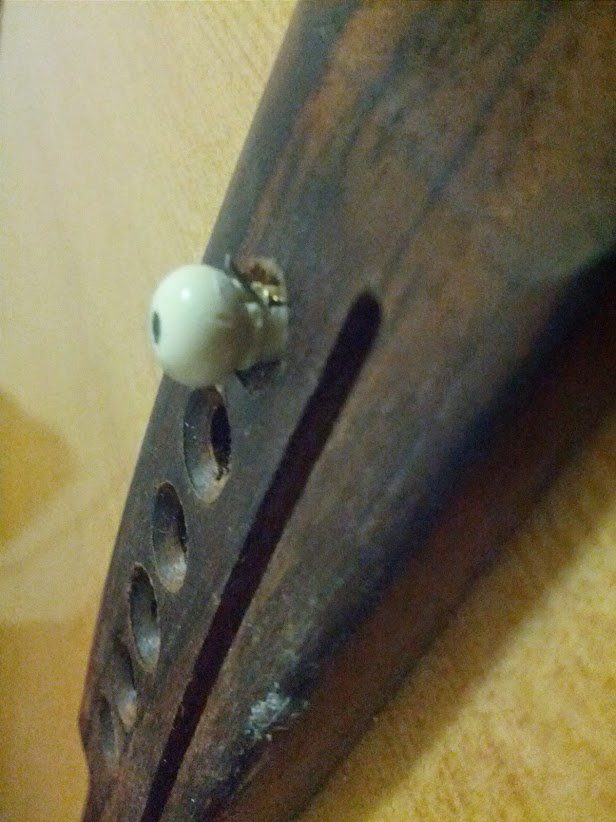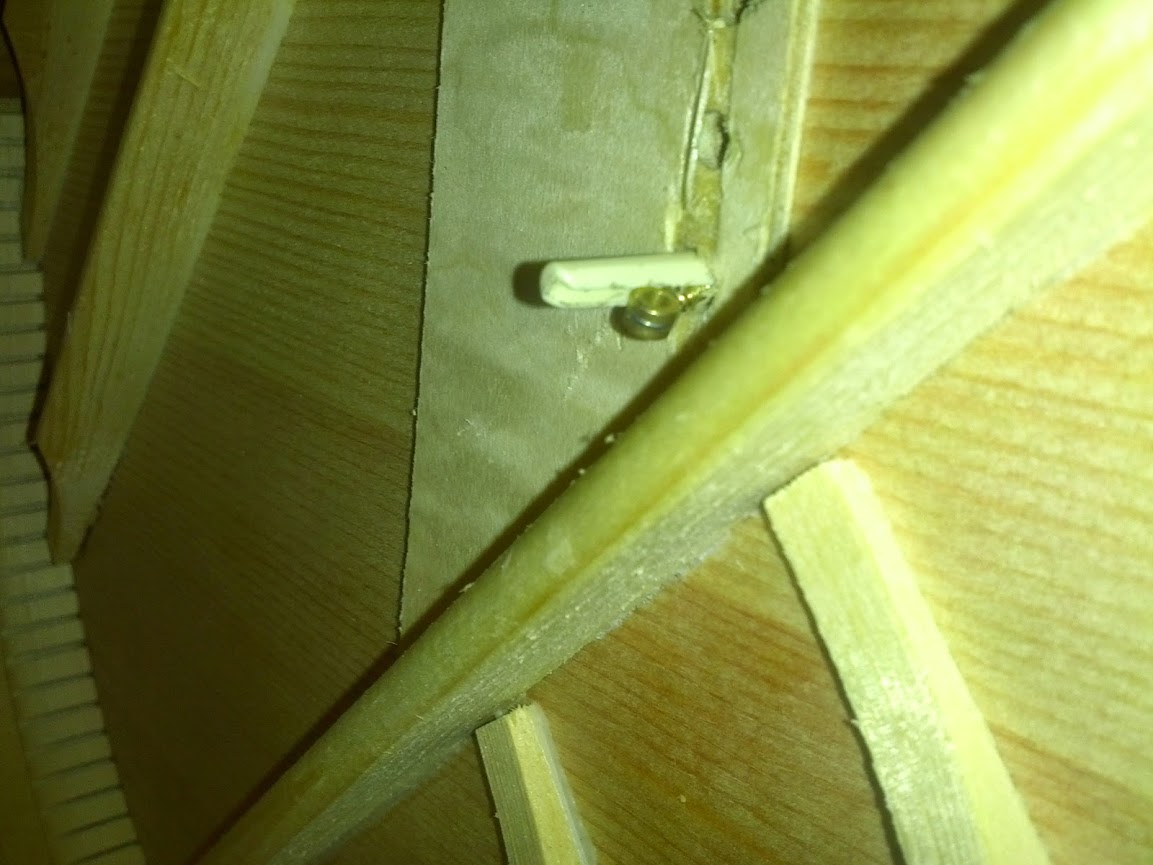Ok so I was able to remove all the strings but one and I am afraid the last one is stuck badly.
I followed the various tutorials on replacing the strings: Removed tension-> pushed it in and tried to pull the pin.
However, this was wasn't getting pushed so I tried cutting it halfway and pushing it. When that didn't help, I cut the chord from the base (near the pin) and then tried. But I think its stuck badly. I have been trying since 2 days but without any luck. Any help will be appreciated. Here are the pics:


